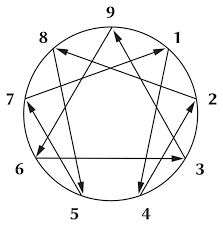Transpersonal Therapy Blog
Questions to Ask in Somatic Therapy: Bringing the Body into the Therapeutic Conversation
When we bring somatics into the therapy room, we invite our clients to access the innate intelligence that lives beneath their narratives. The body doesn’t just carry our history—it carries the pathway toward integration. Every sensation, impulse, and contraction...
5 Steps to Regulate Your Nervous System
Your nervous system is the living bridge between body and spirit—the place where biology, energy, and consciousness meet. It is the instrument through which you experience connection, safety, and aliveness. When this system is regulated, your awareness flows freely through the body. You feel grounded, centered, and able to meet life from your awake, responsive Self.
What is Developmental Trauma?
by Harmony Kwiker Developmental trauma emerges over time through chronic relational disruption—a combination of things that happened (intrusion, misattunement, chaos, or abuse) and things that didn’t happen (consistent attunement, repair, safety, and delight). As...
What is Gestalt Therapy?
by Harmony Kwiker Gestalt therapy is a present-moment, experiential approach to psychotherapy that invites us into direct contact with our inner and outer world. Rather than analyzing the past or interpreting symptoms, Gestalt brings awareness to what is happening...
What is Holistic Psychotherapy?
by Harmony Kwiker Holistic psychotherapy is an approach to healing that honors the whole person—mind, body, energy, and spirit. Rather than focusing on symptoms or pathology, it views each client as an intelligent, living system continually moving toward balance and...
What’s the Difference Between Gestalt Therapy and IFS?
by Harmony Kwiker Both Gestalt Therapy and Internal Family Systems (IFS) are powerful, experiential approaches that honor the complexity of the human psyche. While they share a respect for inner experience and self-awareness, they differ in how they understand the...
Honoring Somatic Intelligence
by Harmony Kwiker When we think of trauma, we often imagine memories, stories, or psychological imprints. Yet trauma is not only held in the mind—it lives in the body. Every contraction, every pattern of tension, every instinct to withdraw or brace is the body’s way...
Being a Therapist in Relationships Outside of the Therapy Room
by Harmony Kwiker As therapists, we spend countless hours cultivating presence, awareness, and skillful attunement to our clients. In order to offer them a clear view of their thoughts, feelings, and patterns, we devote ourselves to becoming an accurate mirror of...
Working with Different Contact Boundary Disturbances in Gestalt Therapy | Harmony Kwiker
Harmony Kwiker | Blog In this lecture, Harmony discusses various experiments for working with contact boundary disturbances in gestalt therapy. Watch Video Here: https://youtu.be/GveUituZuGU When working with any contact boundary disturbance in gestalt therapy, you’re...
8 Best Holistic Therapy Trainings
by Harmony Kwiker | Blog If you’re a therapist looking to expand your skills and specialize in a holistic approach to counseling, then finding the best online therapy courses for therapists will help you is reach your professional goals. As a teacher who is passionate...
The Enneagram’s Application in Transpersonal Gestalt
by Harmony Kwiker | Blog The Enneagram is a tool for awakening, self-discovery, personal growth, and understanding human relationships. It's a model of the human psyche that describes nine interconnected personality types, each with unique strengths, weaknesses,...
Learning to Identify a Polarity in Gestalt Therapy
by Harmony Kwiker | Blog A polarity is comprised of two seemingly opposing qualities of a client's personality that cause an inner conflict. When a clinician becomes present with their client, we begin to see the way the client disrupts contact with the present moment...












